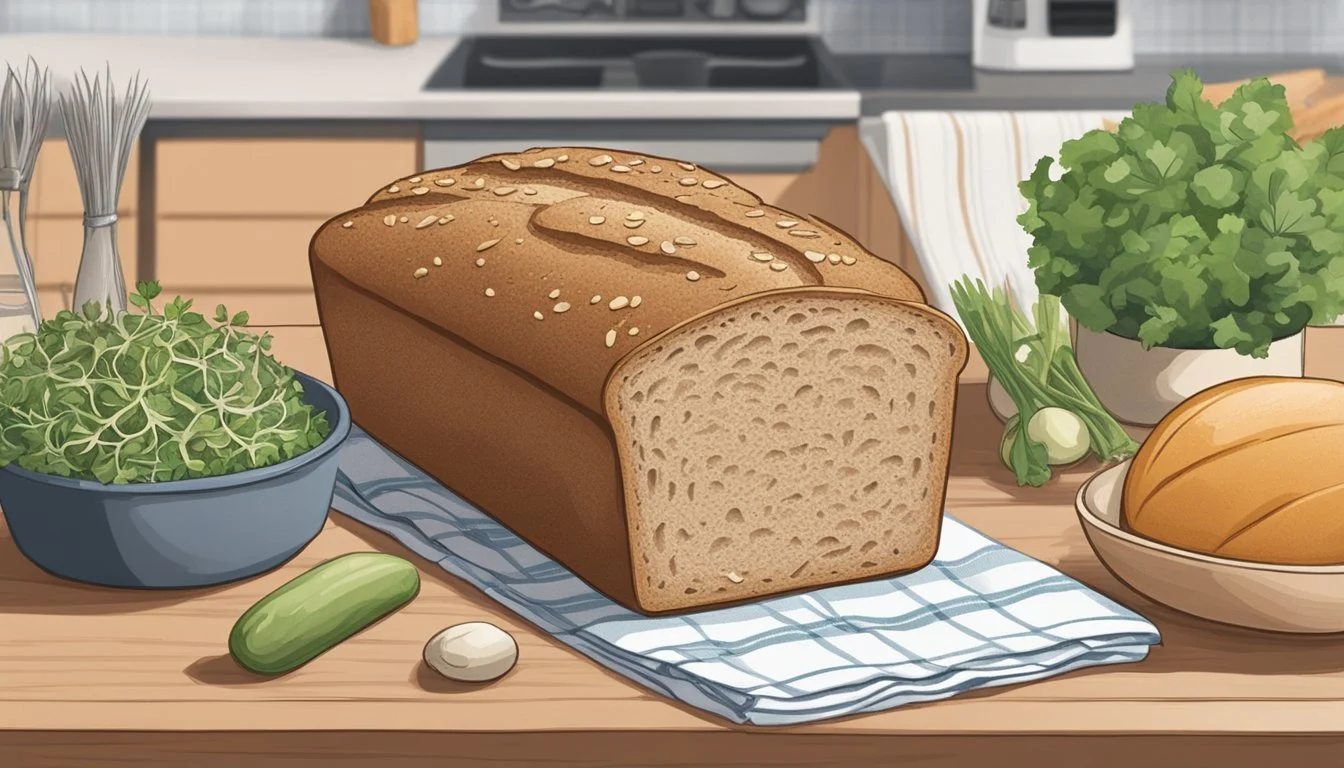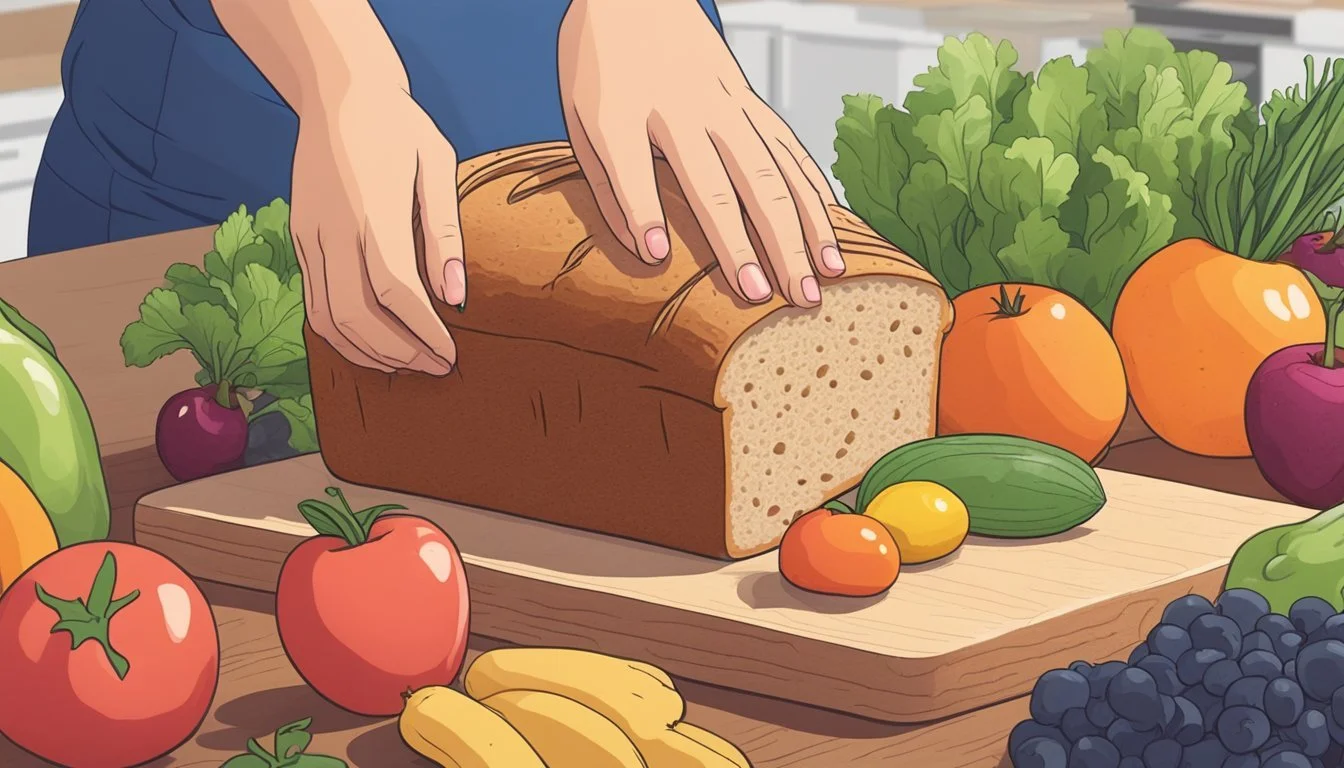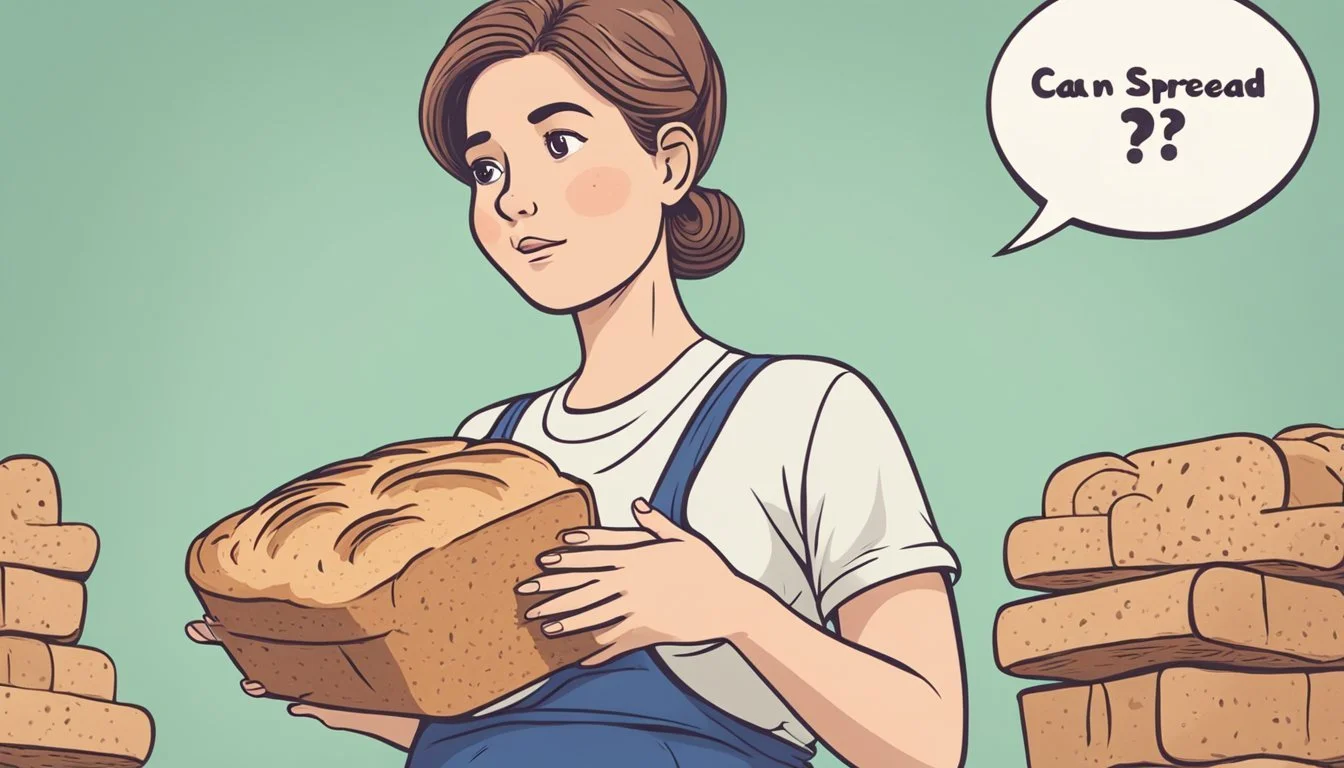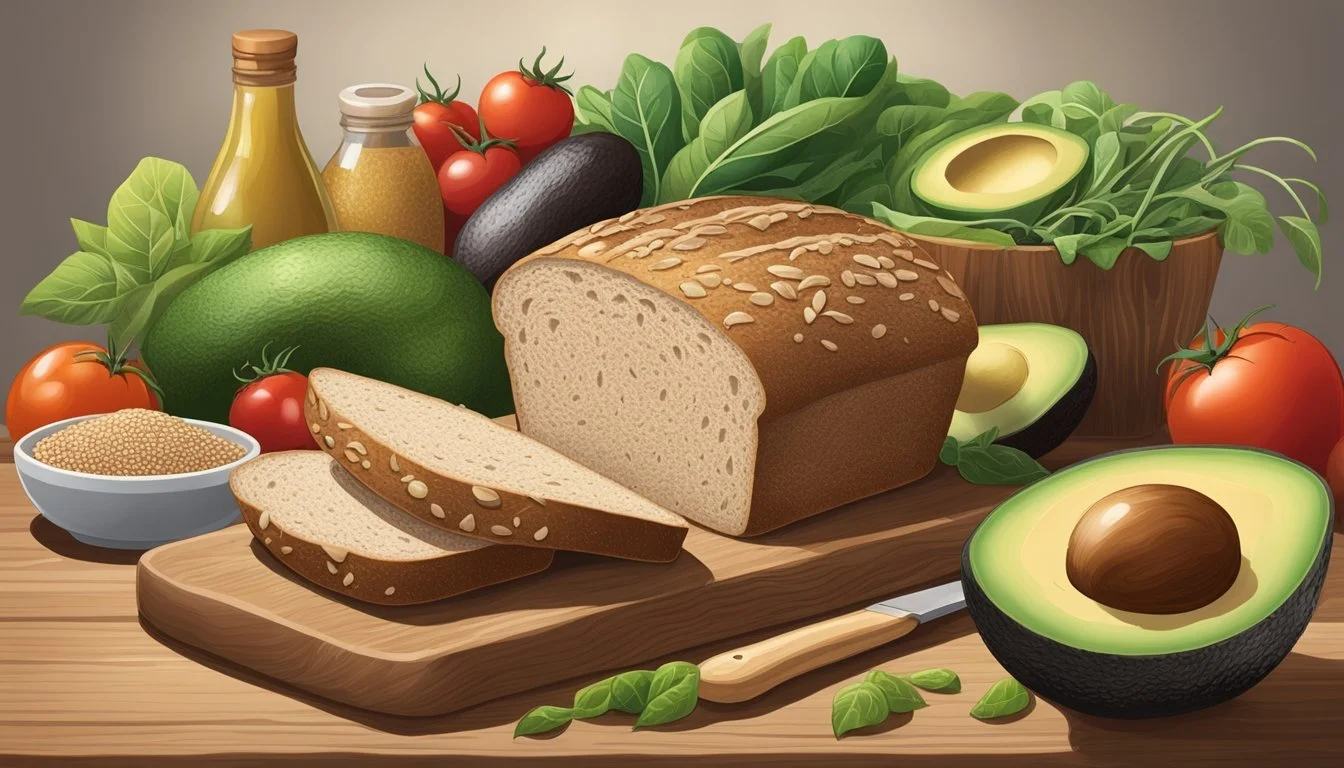Can I Eat Sprouted Bread During Pregnancy?
Understanding Nutritional Safety
Eating a balanced and nutritious diet is essential for a healthy pregnancy. Pregnant women are often advised to focus on whole grains, which are more nutrient-dense than their refined counterparts. Sprouted bread is one such option that may offer a bounty of benefits. Sprouted grains are whole grains that have been germinated, a process that increases nutrient levels and decreases antinutrients, which can interfere with mineral absorption.
Sprouted bread contains higher quantities of essential nutrients like folate compared to non-sprouted bread. Folate is vital during pregnancy, contributing to the prevention of neural tube defects such as spina bifida. Additionally, the sprouting process can enhance the digestibility of grains, making it potentially beneficial for pregnant women managing sensitivity to certain food textures or digestive discomfort.
Furthermore, choosing sprouted bread can aid in maintaining steady blood sugar levels. This is particularly important for those monitoring their glycemic index to prevent or manage gestational diabetes. With its rich content of dietary fiber and essential vitamins, sprouted bread can be a nutritious addition to a pregnant woman's diet. However, it's always recommended to consult with a healthcare provider before making any significant dietary changes during pregnancy.
What Is Sprouted Bread?
Sprouted bread is made from whole grains that have begun to germinate. The process involves soaking the grains in water until they sprout, then grounding them to make dough. This method enhances the grain's natural nutrients and makes it a rich source of fiber and protein.
Nutrient Profile: Sprouted grains boast a higher concentration of certain nutrients compared to their non-sprouted counterparts. The sprouting process increases levels of:
Vitamins: Particularly B vitamins and vitamin C.
Minerals: Including iron and magnesium.
Protein: Essential for building and repairing tissues.
Fiber: Important for digestive health.
The sprouting process also reduces antinutrients, compounds which can interfere with the absorption of minerals.
Digestibility: There is an important improvement in the bread's digestibility. Sprouted grains break down starches into simpler sugars, aiding the digestive process. Additionally, the sprouting process partially breaks down protein, making it easier to digest.
When choosing sprouted bread, one should look for labels that indicate 'whole sprouted grains' to ensure the bread utilizes the entire grain, including the bran, germ, and endosperm, thus providing the full spectrum of nutrients.
Nutritional Benefits of Sprouted Bread During Pregnancy
During pregnancy, a woman's body needs additional nutrients, vitamins, and minerals. Sprouted bread can be a beneficial addition to a pregnant woman's diet, addressing some of these nutritional demands.
Rich in Essential Nutrients
Sprouted bread is a robust source of essential nutrients vital for both the mother and the developing fetus. It generally contains higher levels of B vitamins, including folate, which is crucial in reducing the risk of neural tube defects. Moreover, sprouted grains enhance the availability of vitamins C and E, and the minerals such as iron, calcium, and magnesium, which support fetal development and maternal health.
High Fiber Content and Digestive Health
The fiber content in sprouted bread is notably high, aiding in maintaining digestive health and alleviating constipation, a common issue during pregnancy. The sprouting process breaks down some of the starches in grains, leading to bread that's easier to digest and richer in dietary fiber.
Better Blood Sugar Control
For pregnant women, maintaining stable blood sugar levels is vital; gestational diabetes is a concern for many. Sprouted bread has a lower glycemic index compared to other bread, helping to regulate blood sugar levels effectively. The presence of fiber and increased protein in sprouted grains can also aid in slowing down the absorption of carbohydrates, contributing to better blood sugar control.
Is Sprouted Bread Safe During Pregnancy?
Eating sprouted bread during pregnancy can offer health benefits due to its whole grain content and improved digestibility. However, ensuring safety requires understanding food safety and being aware of potential contamination risks.
Understanding Food Safety
Sprouted bread is often made from whole grains that have been soaked and allowed to germinate before being milled into flour. These whole grains can lead to an increase in certain nutrients such as vitamins and minerals which are beneficial during pregnancy. They are also easier to digest for some individuals.
It's important for pregnant women to consult with a healthcare provider before making any significant changes to their diet. A healthcare provider can give personalized advice based on the individual's health history and nutritional needs.
Potential Contamination Risks
The process of sprouting grains has a potential risk of bacterial contamination. Salmonella and E. coli are bacteria of concern that can be present in sprouted grains if not properly handled and cooked. It's crucial for pregnant women to ensure that sprouted bread is purchased from reputable sources and is cooked thoroughly to reduce any health risks.
The safety of consuming sprouted bread depends not only on the product itself but also on the handling and preparation before consumption. Pregnant women are advised to handle sprouted grains with care, following food safety guidelines to decrease any risk of foodborne illness.
How to Choose the Right Sprouted Bread
Choosing the right sprouted bread during pregnancy involves careful evaluation of nutrition labels and an understanding of the ingredients, ensuring that the bread contains whole grains and minimal additives.
Reading Nutrition Labels
When pregnant, it's imperative to read the nutrition labels on sprouted bread to ensure adequate nutrient intake and to avoid excessive calories. One should look for high protein content and low to moderate carbohydrate levels. Fiber is another crucial component to consider; a good sprouted bread should offer a decent amount of dietary fiber. Additionally, watching for sodium and sugar content helps maintain a healthy diet during pregnancy. The absence of preservatives and additives on the label indicates a more natural product, which is preferable for maternal health.
Identifying Whole Grains and Additives
A suitable sprouted bread for pregnancy should list whole grains as the first ingredient. The key grains to look for are whole wheat, barley, oat, and rye. Sprouted grain bread can include a variety of sprouted seeds, such as:
Sprouted wheat
Sprouted barley
Sprouted millet
Sprouted spelt
Whole wheat bread and whole grain bread are generally rich in nutrients. However, verifying that the grains are indeed sprouted and not just whole is crucial for the added benefits they impart. One must also scrutinize ingredient lists for non-essential additives. Preferentially, the bread should not contain any preservatives, artificial colors, or flavors, which could be unwanted during pregnancy. Instead, bread enriched with seeds like flax, chia, or sunflower can offer additional health benefits like omega-3 fatty acids, which are beneficial for the development of the baby.
Including Sprouted Bread in Your Pregnancy Diet
Sprouted bread is a nutritious option for expectant mothers, as it provides essential nutrients beneficial for a healthy pregnancy. It's a great source of dietary fiber, protein, and folate—key for neural tube development.
Portion Sizes and Frequency
Expectant mothers should aim for moderation when it comes to the amount of sprouted bread in their diet. It's rich in carbohydrates, which are a key source of energy, so incorporating it in a balanced way is critical.
Daily Serving Recommendation:
Aim for about 1-2 slices per day as part of a balanced diet.
This ensures that pregnant women get the benefits of sprouted bread—like its higher folate content—without excessive caloric intake.
Combining with Other Healthy Foods
Pairing sprouted bread with other nutritious foods can enhance the diet of a pregnant woman, ensuring a more complete spectrum of vitamins and minerals.
Healthy Fats: Avocado or nut butter can add healthy fats and additional flavor.
Protein: Lean proteins such as chicken, eggs, or cheese can turn a slice of bread into a satisfying meal.
Vegetables: Layering spinach, bell peppers, or cucumbers on bread increases the intake of essential vitamins, minerals, and dietary fiber.
Dairy: Adding yogurt or cottage cheese can boost calcium and protein.
By mixing sprouted bread with an array of fruits, vegetables, nuts, and other whole grains, pregnant women create a nutrient-dense meal that supports the health of the mother and the developing baby.
Addressing Common Pregnancy Concerns
During pregnancy, managing weight and digestive issues are common concerns. Sprouted bread can be a beneficial dietary choice for pregnant women who want to tackle these issues effectively.
Managing Weight Gain
Pregnant women often monitor their weight gain closely, as it's an indicator of a healthy pregnancy. Sprouted bread is generally higher in fiber and nutrients compared to white bread, making it a more fulfilling option that may help control unnecessary calorie intake. It's essential for pregnant women to choose bread that offers more than 3 grams of fiber per slice to assist in weight management and to ensure that they are consuming the necessary nutrients for their baby's development.
Dealing with Nausea and Digestive Issues
Nausea and digestive issues like constipation and bloating are typical during pregnancy. The high fiber content in sprouted bread may aid digestion and alleviate uncomfortable symptoms. Here are tips to minimize digestive discomfort:
Eat smaller, frequent meals: Helps to reduce bloating and nausea.
Hydrate with water: Aids in preventing constipation and hemorrhoids.
Choose sprouted bread: The easier-to-digest grains may lessen instances of diarrhea and provide relief from nausea.
In the context of sprouted bread, its natural composition can help pregnant women address these common concerns while contributing to their overall nutrient intake.
Consulting Healthcare Providers
During pregnancy, a woman's diet is critical for the development of her baby. When considering whether sprouted bread is a safe option, consulting with healthcare providers is key. They can offer personalized advice that aligns with her individual health needs and pregnancy nutrition goals.
Healthcare providers include a range of professionals such as obstetricians, midwives, and registered dietitians. Each can provide valuable insights:
Obstetricians and Midwives: Specialized in pregnancy and childbirth, they understand the nuances of prenatal nutrition and can clarify whether sprouted bread is a healthy choice for expecting mothers.
Registered Dietitians: As experts in diet and nutrition, they can assess the safety and nutritive value of sprouted bread, considering its folate content which is crucial during pregnancy.
Women should be encouraged to ask questions about:
Food Safety: Ensure sprouted bread is free from harmful bacteria.
Nutrition: Discuss how sprouted bread can contribute to their dietary needs.
Personal Health: Address any individual health concerns that may impact dietary choices.
Having a conversation with healthcare providers assures that pregnant women are making informed decisions about their diet, ultimately contributing to a safe and healthy pregnancy.
Potential Risks and Alternatives
When considering sprouted bread during pregnancy, it's important to be aware of personal allergies or intolerances and to know the alternatives that might be better suited to individual health needs.
Recognizing Allergic Reactions and Intolerances
Sprouted bread, often made from whole wheat, can be nutritious but may not be suitable for everyone. Those with nut allergies should read ingredients carefully as some sprouted breads incorporate nuts or are produced in facilities that handle nuts. Gluten intolerance is another concern, as sprouted grain bread still contains gluten. Symptoms of an allergic reaction or intolerance might include itching, discomfort, or gastrointestinal issues. Pregnant women should talk to their healthcare provider if they suspect a food allergy or intolerance.
Exploring Alternative Grain Options
There are various bread alternatives that can accommodate dietary restrictions while still providing nutritional benefits during pregnancy:
Sourdough Bread: It has a lower glycemic index and may be easier to digest due to the fermentation process.
Rye Bread: A good source of dietary fiber, it is beneficial for those without gluten sensitivities.
Oat Bread: Typically softer and sweeter, oat bread may be a good option for those looking for a gluten-free alternative, though it's important to ensure it's made from certified gluten-free oats to avoid cross-contamination.
Gluten-Free Options: There's a wide variety of gluten-free bread available, made from grains like rice or buckwheat, that can be a safe alternative for those with gluten intolerance.
A table summarizing the alternatives:
Bread Type Notable Benefit Consideration Needed Sourdough Lower glycemic index Must be tolerated well Rye High in fiber Contains gluten Oat Often gluten-free Verify gluten-free certification Gluten-Free Friendly for gluten intolerance Varies in nutrient content
It's vital for pregnant women to choose bread that aligns with their dietary needs while still supplying essential nutrients crucial for fetal development.
Conclusion
Sprouted bread can be a nutritious choice for expectant mothers seeking to maintain a healthy diet during pregnancy. Due to its process of germination, sprouted bread has a host of nutrients beneficial for a healthy pregnancy. Its higher folate content contributes to the prevention of neural tube defects, an important consideration for fetal development. Furthermore, sprouted bread often contains other key nutrients, including iron, magnesium, and vitamin B6, vital for both the mother and the developing fetus.
Expectant mothers are encouraged to include whole grains in their diet, and sprouted bread is a viable option. It typically offers more protein and fiber than regular white bread, which can help with maintaining steady blood sugar levels, reducing the risk of gestational diabetes. However, it is essential to opt for varieties that come without added sugars or oils.
Pregnant women are advised to consider the following when selecting bread:
Fiber content: At least 3 grams per slice for blood sugar regulation.
Protein content: At least 3 grams per slice to support fetal growth.
Ingredient quality: Look for bread without additives such as bleach, sugars, or unhealthy oils.
In essence, sprouted bread, consumed as part of a balanced diet, aligns with the nutritional needs of pregnancy, providing a dense nutrient profile and fostering a holistic approach to a healthy diet during this critical period. It's advisable to consult with a healthcare provider before making any significant changes to a pregnancy diet.








